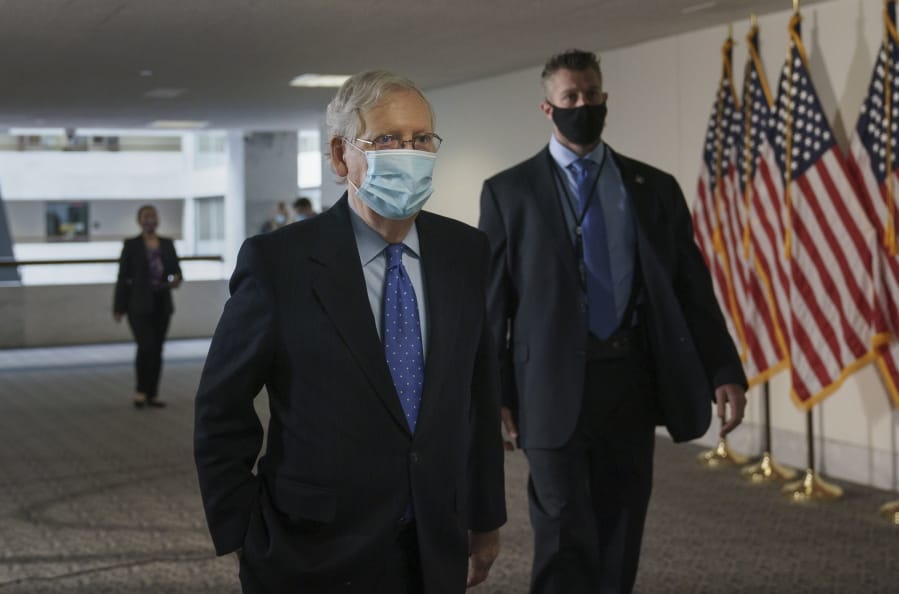WASHINGTON — The Senate is poised for a rare weekend session as Republicans race to put Amy Coney Barrett on the Supreme Court and cement a conservative majority before Election Day despite Democratic efforts to stall President Donald Trump’s nominee.
Democrats mounted time-consuming procedural hurdles Friday with no realistic chance of stopping Barrett’s advance in the Republican-controlled chamber. Barrett, a federal appeals court judge, is expected to be confirmed Monday and quickly join the court.
Senate Democratic leader Chuck Schumer of New York warned Republicans that they were making a “colossal and historic mistake.”
Republicans appeared unmoved. In a lengthy speech, Senate Majority Leader Mitch McConnell praised Barrett as an “extraordinary” nominee and defended her quick confirmation. “We will give this nominee the vote she deserves no later than Monday,” he said.
Barrett, 48, presented herself in public testimony before the Senate Judiciary Committee as a neutral arbiter of cases on abortion, the Affordable Care Act and presidential power — issues soon confronting the court. At one point she suggested, “It’s not the law of Amy.”
But Barrett’s past writings against abortion and a ruling on the Obama-era health care law show a deeply conservative thinker.
Trump said this week he is hopeful the Supreme Court will undo the health law when the justices take up a challenge Nov. 10, the week after the election.
The fast-track confirmation process is like none other in U.S. history so close to a presidential election.
Schumer called it the “least legitimate process in the country’s history” as he forced procedural steps, including an unusual private Senate session, in hopes of changing Republicans’ minds. But Republicans quickly convened, then ended, the closed-door meeting, pushing forward. Sen. John Cornyn, R-Texas, dismissed the stall tactics as “frivolous.”



